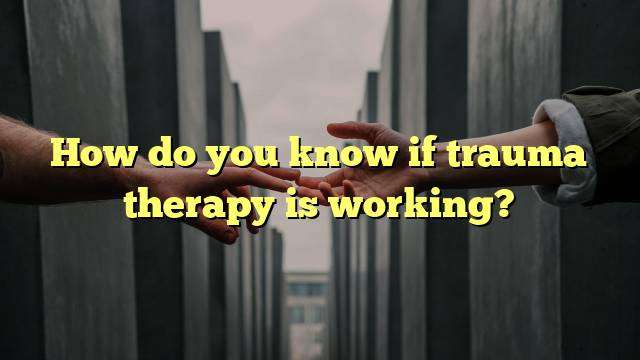Understanding Trauma Therapy and Its Benefits
When a traumatic event occurs in your life, it can lead to a range of physical, emotional, and psychological responses. Depending on the individual, these responses can range from mild distress to post-traumatic stress disorder (PTSD). Trauma therapy is a form of psychotherapy that can help people to process and manage the aftermath of a traumatic event. It can also help people to understand how the trauma has impacted their lives and how to move forward in a healthy way.
What is Trauma Therapy?
Trauma therapy is a type of talk therapy that focuses on helping individuals explore and process the psychological, emotional, and physical impacts of a traumatic event. The goal of trauma therapy is to process and make meaning of the traumatic experience, while also helping individuals to gain new coping skills and manage associated symptoms. It is important to note that trauma therapy is not a “quick fix” and takes time and effort to be effective.
When is Trauma Therapy Recommended?
Trauma therapy can be beneficial for anyone who has experienced a traumatic event. This includes individuals who have been exposed to physical or emotional harm, such as a natural disaster, physical attack, or sexual assault. It can also be beneficial for people who have experienced the loss of a loved one or other significant life change.
What to Expect from Trauma Therapy
The structure and content of trauma therapy will depend on the individual and the therapist. Generally, trauma therapy sessions may include a range of topics and activities, such as:
- Exploring and processing the trauma: In this stage, the therapist will help the individual to explore the thoughts, feelings, and physical sensations associated with the trauma. This can help the individual to gain a better understanding of their experience and the impact it has had on their life.
- Developing new skills: During trauma therapy, the therapist will help the individual to develop new coping skills and strategies to manage symptoms associated with the trauma. This may include relaxation techniques, mindfulness exercises, or cognitive behavioral therapy (CBT).
- Creating a safety plan: The therapist may also help the individual to create a safety plan for times when symptoms become too overwhelming. This plan can include strategies for self-care, such as positive self-talk, deep breathing, or reaching out to a support person.
How to Know if Trauma Therapy is Working
It is important to remember that trauma therapy is a process, and it can take time to notice the positive effects. Generally, some signs that therapy is working include:
- Improvement in physical symptoms: Trauma can lead to a range of physical symptoms, such as headaches, fatigue, or digestive issues. If these symptoms are improving, it may be a sign that therapy is working.
- Increased feelings of safety: Trauma can lead to feelings of vulnerability or fear. If therapy is working, you may notice an increased sense of safety and security in your life.
- Improved self-care: Trauma can also lead to difficulty with self-care, such as poor diet or lack of sleep. If therapy is working, you may notice that you are taking better care of yourself.
- Reduced symptoms of PTSD: If you are experiencing symptoms of PTSD, such as flashbacks, intrusive thoughts, or avoidance behaviors, you may notice a decrease in these symptoms as therapy progresses.
- Decreased distress: Trauma can lead to high levels of distress and discomfort. If therapy is working, you may notice that these feelings are decreasing over time.
It is important to remember that everyone’s experience with trauma therapy is unique. While some people may notice immediate improvements, others may take longer to process and heal from the traumatic event. If you are unsure if therapy is working, it can be helpful to talk to your therapist about your progress and how you are feeling.
Conclusion
Trauma therapy is a type of talk therapy that can be beneficial for anyone who has experienced a traumatic event. It can help individuals to understand and process the trauma, while also building new coping skills and managing associated symptoms. While it is important to remember that trauma therapy takes time, there are some signs that it may be working, such as improved physical symptoms, increased feelings of safety, improved self-care, reduced symptoms of PTSD, and decreased distress. Ultimately, it is important to remember that everyone’s experience with trauma therapy is unique, and it is important to talk to your therapist about your progress.




